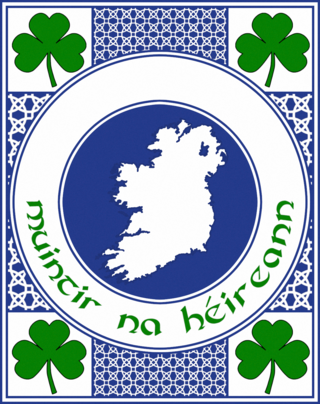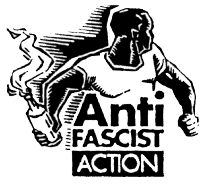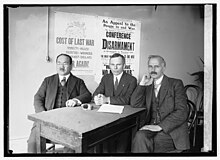
The 79 Group was a faction within the Scottish National Party (SNP), named after its year of formation, 1979. The group sought to persuade the SNP to take an active left-wing stance, arguing that it would win more support, and were highly critical of the established SNP leaders. Although it had a small membership, the group caused sufficient disquiet that it was expelled from the SNP in 1982, although its members were subsequently readmitted and many attained senior positions in the Scottish Government after 2007. Former First Minister Alex Salmond (2007–2014) was a leading member of the group.
The London Swinton Circle is a long-running British right-wing pressure group. The group states that its purpose is to uphold traditional conservative and Unionist principles.
Column 88 was a neo-Nazi paramilitary organisation based in the United Kingdom. It was formed in the early 1970s, and disbanded in the early 1980s. The members of Column 88 undertook military training under the supervision of a former Royal Marine Commando, and also held regular gatherings attended by neo-nazis from all over Europe. The name is code: the eighth letter of the alphabet 'HH' represents the Nazi greeting 'Heil Hitler'. Journalist Martin Walker described Column 88 as a "shadow paramilitary Nazi group".
The Communist League was one of the first Trotskyist groups in Britain, formed in 1932 by members of the Communist Party of Great Britain in South London, including Harry Wicks, who had been expelled after forming a loose grouping inside the CPGB known as the Balham Group. This became the British Section of the International Left Opposition and adopted the name Communist League in June 1933. They published a monthly newspaper, Red Flag, and a quarterly journal, The Communist.
The Peace Society, International Peace Society or London Peace Society, originally known as the Society for the Promotion of Permanent and Universal Peace, was a pioneering British pacifist organisation that was active from 1816 until the 1930s.
The National Corporate Party was a fascist political party in Ireland founded by Eoin O'Duffy in June 1935 at a meeting of 500. It split from Fine Gael when O'Duffy was removed as leader of that party, which had been founded by the merger of O'Duffy's Blueshirts, formally known as the National Guard or Army Comrades Association, with Cumann na nGaedheal, and the National Centre Party.
The National Assembly Against Racism (NAAR) was a British anti-racist and anti-fascist group.
The 92 Group is a right-wing grouping within the British Conservative Party. They are so named because they would meet at Conservative MP Sir Patrick Wall's home, 92 Cheyne Walk in Chelsea, London. It was founded in 1964 in order to "keep the Conservative Party conservative" and membership is by invitation only. During the period of Margaret Thatcher's leadership of the Conservative Party, it was a prominent supporter of her policies. During John Major's premiership, it became a focus for Thatcherite MPs dissatisfied with his leadership. It was also prominent in supporting John Redwood's unsuccessful candidacy against Major for the leadership of the Conservative Party in 1995.

Muintir na hÉireann was a minor political party in Ireland, with socially conservative and populist policies. It was founded in 1994 and active in the 1990s. The party had one public representative, former Green Party councillor Richard Greene, who served one term on Dún Laoghaire–Rathdown County Council from 1991 to 1999. Greene left the Green Party in protest at its "left-wing social agenda", particularly its refusal to adopt an anti-abortion policy, and his party reflected his views on issues such as family values and the extradition of Irish republicans convicted of terrorist offenses to the United Kingdom.
The No More War Movement was the name of two pacifist organisations, one in the United Kingdom and one in New Zealand.

Anti-Fascist Action (AFA) was a militant anti-fascist organisation, founded in the UK in 1985 by a wide range of anti-racist and anti-fascist organisations.

Thomas Trenchard, 2nd Viscount Trenchard MC was a hereditary peer and junior minister in Margaret Thatcher's Conservative government from 1979 to 1983.
The Plebs' League was a British educational and political organisation which originated around a Marxist way of thinking in 1908 and was active until 1926.
The English National Association (ENA) was a political group active in the United Kingdom during the Second World War. It was accused of having fascist sympathies.
The Henry George Foundation is an independent UK economic and social justice think tank and public education group concerned with "the development of sound relationships between the citizen, our communities and our shared natural and common resources". The Henry George Foundation describes itself as "active on three broad fronts: research, education, and advocacy". The Foundation takes its name from Henry George, the 19th Century economist and proponent of the taxation of land values.

The Anarchist Black Cross (ABC), formerly the Anarchist Red Cross, is an anarchist support organization. The group is notable for its efforts at providing prisoners with political literature, but it also organizes material and legal support for class struggle prisoners worldwide. It commonly contrasts itself with Amnesty International, which is concerned mainly with prisoners of conscience and refuses to defend those accused of encouraging violence. The ABC openly supports those who have committed illegal activity in furtherance of revolutionary aims that anarchists accept as legitimate.
The National Council of Labour Colleges (NCLC) was an organisation set up in the United Kingdom to foster independent working class education.
The Union of Jewish Women (UJW) was a trade union and the first national Jewish women's society in Britain. The UJW was formed with the intention of bringing women's perspectives to matters of importance to the Jewish community.
The Anti-Racist Alliance (ARA) was a British anti-racist organisation formed in November 1991. It was established mainly by black activists in the Labour Party.





